MASNEWS 03/2009: Of Old and New Traditions
MAS 2009 – Commencement of the Class of 2009
Life after the MAS: Esen Momunkulov
The MAS Experience
Inside MAS: Welcome John R. Deni
Opening celebration for the HCA’s extension
Thanksgiving – A new tradition
Upcoming Events at the HCA
Dear All,
 Welcome to the Heidelberg Center for American Studies’ MAS newsletter!
Welcome to the Heidelberg Center for American Studies’ MAS newsletter!
This edition covers some of the highlights of the latter half of the previous year at the HCA. We welcome our new students as well as Dr. John Deni to our staff, who joined us this September. In addition, we take a look back at the festivities celebrating the Commencement of the MAS Class of 2009, the opening of the HCA’s new extension as well as Thanksgiving.
Please feel free to forward our newsletter to anyone interested in American Studies. Of course, we appreciate any feedback you would like to share with us.
Many thanks and best wishes,
Prof. Dr. Dr. h.c. Detlef Junker
HCA Founding Director
MAS 2009 – Commencement of the Class of 2009
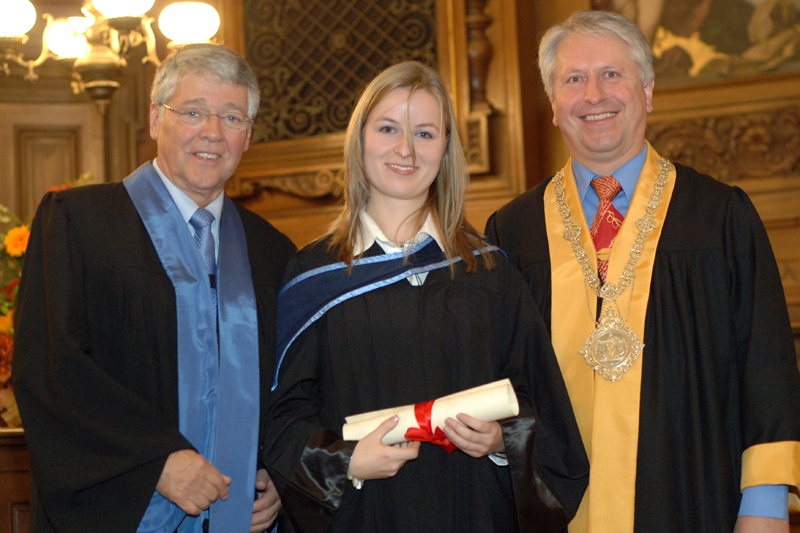 On October 20, the HCA celebrated the commencement of the fifth MAS Class, the Class of 2009. Simultaneously the Class of 2011 was welcomed to the M.A. in American Studies program in Heidelberg.
On October 20, the HCA celebrated the commencement of the fifth MAS Class, the Class of 2009. Simultaneously the Class of 2011 was welcomed to the M.A. in American Studies program in Heidelberg.
Of the 18 graduates from the United Kingdom, Vietnam, the United States of America, Russia, Germany, Hungary, Iran, Poland, Turkey, Romania and China, 15 were present in the university’s Old Lecture Hall to receive their diplomas. The HCA continued its tradition of wearing formal academic attire to give the occasion a festive character. Graduates as well as HCA faculty and staff members wore traditional gowns and hoods for the ceremony.
The graduates were welcomed and congratulated by Professor Dr. rer. nat. 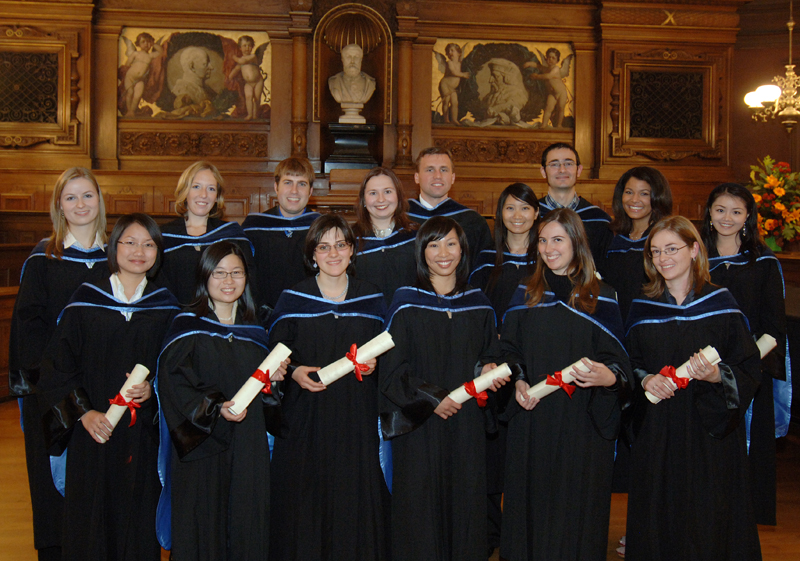 habil Bernhard Eitel, Rector of the Ruprecht Karls University Heidelberg, Professor Dr. Heinz-Dietrich Löwe, Dean of the Faculty of Philosophy at the University of Heidelberg, and Professor Dr. Dr. h.c. Detlef Junker, director of the HCA. Professor Hope M. Harrison, George Washington University, delivered the keynote speech. Natasja Gerlach, the salutatorian, spoke on behalf of the graduating class, filling in for class valedictorian Joseph Zane who was on military duty.
habil Bernhard Eitel, Rector of the Ruprecht Karls University Heidelberg, Professor Dr. Heinz-Dietrich Löwe, Dean of the Faculty of Philosophy at the University of Heidelberg, and Professor Dr. Dr. h.c. Detlef Junker, director of the HCA. Professor Hope M. Harrison, George Washington University, delivered the keynote speech. Natasja Gerlach, the salutatorian, spoke on behalf of the graduating class, filling in for class valedictorian Joseph Zane who was on military duty.
Rector Eitel stressed the selective, international character of the MAS program, touting this as proof of the highly successful global standing of Heidelberg University. He also thanked the benefactors who had made it possible for many of the graduates to participate in the program by funding scholarships. He concluded his remarks by asking the graduates to stay in touch and to build international bridges with their knowledge and education.
Professor Dr. Heinz-Dietrich Löwe congratulated the MAS graduates warmly and emphasized the importance of multicultural abilities and understanding in today’s world.
Professor Junker also congratulated the Class of 2009 and once more pointed out the fact that the MAS program attracts students from all over the world. He also introduced the MAS class of 2011 and welcomed the six students who had joined the Ph.D. in American Studies program. There is not going to be an MAS class of 2010 because the two-semester program has been extended to three semesters. “This allows students to fully concentrate on writing their master’s theses during their third semester,” said Professor Junker. The class of 2011 consists of 19 students from 13 different countries. This was something the HCA is very proud of, added Professor Junker, who then introduced the keynote speaker, Prof. Hope Harrison.
Professor Hope M. Harrison, who teaches History and International Affairs at George Washington University is currently spending a year as a Fulbright senior research fellow at the Bundesstiftung Aufarbeitung in Berlin. Professor Harrison has previously held fellowships from, among others, the Council on Foreign Relations, the Norwegian Nobel Institute, the Kennan Institute for Advanced Russian Studies of the Woodrow Wilson International Center for Scholars, and the Davis Center at Harvard University. She has also served in the White House on the National Security Council in both the Clinton and Bush Administrations.
In her speech “Expect the Unexpected” Hope M. Harrison spoke about the fall of the Berlin Wall and its history from a scholarly point of view as well as about her personal experiences in Berlin twenty years ago. She pointed out that at the time it had become more or less obvious that the wall would fall sooner or later, yet it was widely assumed that this would not happen so soon. Nobody had expected this, and this was also Professor Harrison’s message for the graduates: “Expect the Unexpected”.
Following the keynote address, the Class of 2009 received their diplomas. Joseph Zane, from the United States, graduated as the class valedictorian, though his military duties prevented him from being available to deliver the valedictory address. In her thoughtful salutatory address, Natasja Gerlach recounted her memories of the time the Class of 2009 spent in Heidelberg and at the HCA.
After the ceremony, the graduates and their families and friends were invited to a reception in the new academic facilities of the HCA, which were officially dedicated on this occasion.
Life after the MAS: Esen Momunkulov
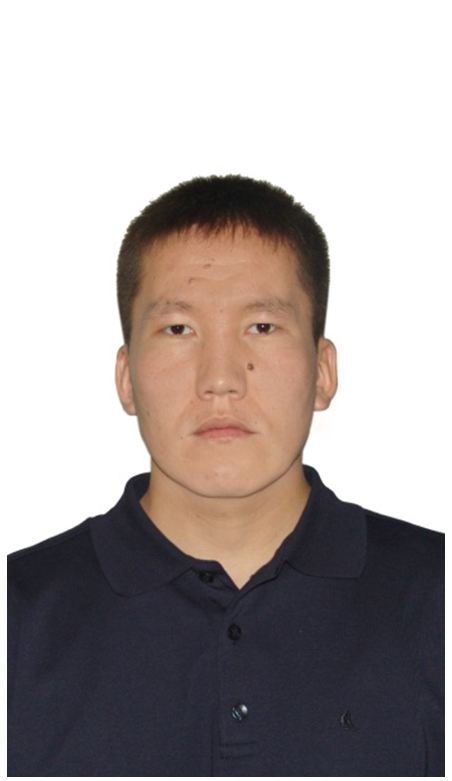 Esen Momunkulov, a graduate of the MAS 2007 class, returned to Kyrgyzstan after graduating. He reports on his current professional and academic activities.
Esen Momunkulov, a graduate of the MAS 2007 class, returned to Kyrgyzstan after graduating. He reports on his current professional and academic activities.
More than a year has passed since the graduation of the MAS class 2007. It is unbelievable that time goes by so fast. While I was studying at the HCA, I told myself that I would keep in touch with my professors and classmates after the graduation. Well, I was going to, but every time when I had decided to send an email, I kept telling myself, “wait until you have something that is worth telling”, “wait until your project ends successfully and then you can share your joy with others”, etc. Now, I believe this was not a good idea at all.
Christian Kempf, a student assistant at the HCA, offered me to write an article for the newsletter and I agreed without hesitating because it was such a good opportunity to say “Hi” to everybody. First of all, I hope things are going well for everyone. Secondly, I once again would like to thank the HCA professors and staff for providing students with good quality education. The HCA diploma is truly serving me well here in Kyrgyzstan.
After I returned from Heidelberg, I was still working on my M.A. thesis. It was a very difficult task to write my thesis with my daughter dragging all my books and papers around the house. Besides, my wife and daughter wanted me to spend some time with them after being apart for 6 months. The deadline for the thesis was putting extra stress on me as well. Despite all the difficulties, I managed to finish my thesis before the deadline, of which I am very proud.
After I sent off my M.A. thesis, I took some time visiting relatives and friends. For several weeks my routine was the same: sleeping, watching TV and eating good food. Then, I started to look for a job. I decided to take some time off from academia because I could not look at my books any more. A friend of mine made me the offer to be a manager for his small construction project and I agreed. The project lasted for a year and I believe it was a success. I was responsible for the overall management of the construction of a car repair shop. I acquired management skills, learned to work with bureaucrats in government bodies and became familiar with construction and auto parts business.
In May 2009, I got a chance to participate at a conference in Potsdam, Germany. Unfortunately, my travel visa was only valid for a few days, so I did not have time to visit Heidelberg. Recently I applied and was admitted to the Ph.D. program at the Diplomatic Academy of the Foreign Ministry of the Kyrgyz Republic. I plan to start teaching at a university this fall semester. Finally, I would like to ask the MAS Class of 2007 to keep in touch and share their experiences after the program. I wish you all good luck in your endeavors.
The MAS Experience
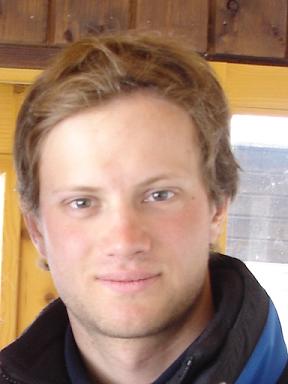
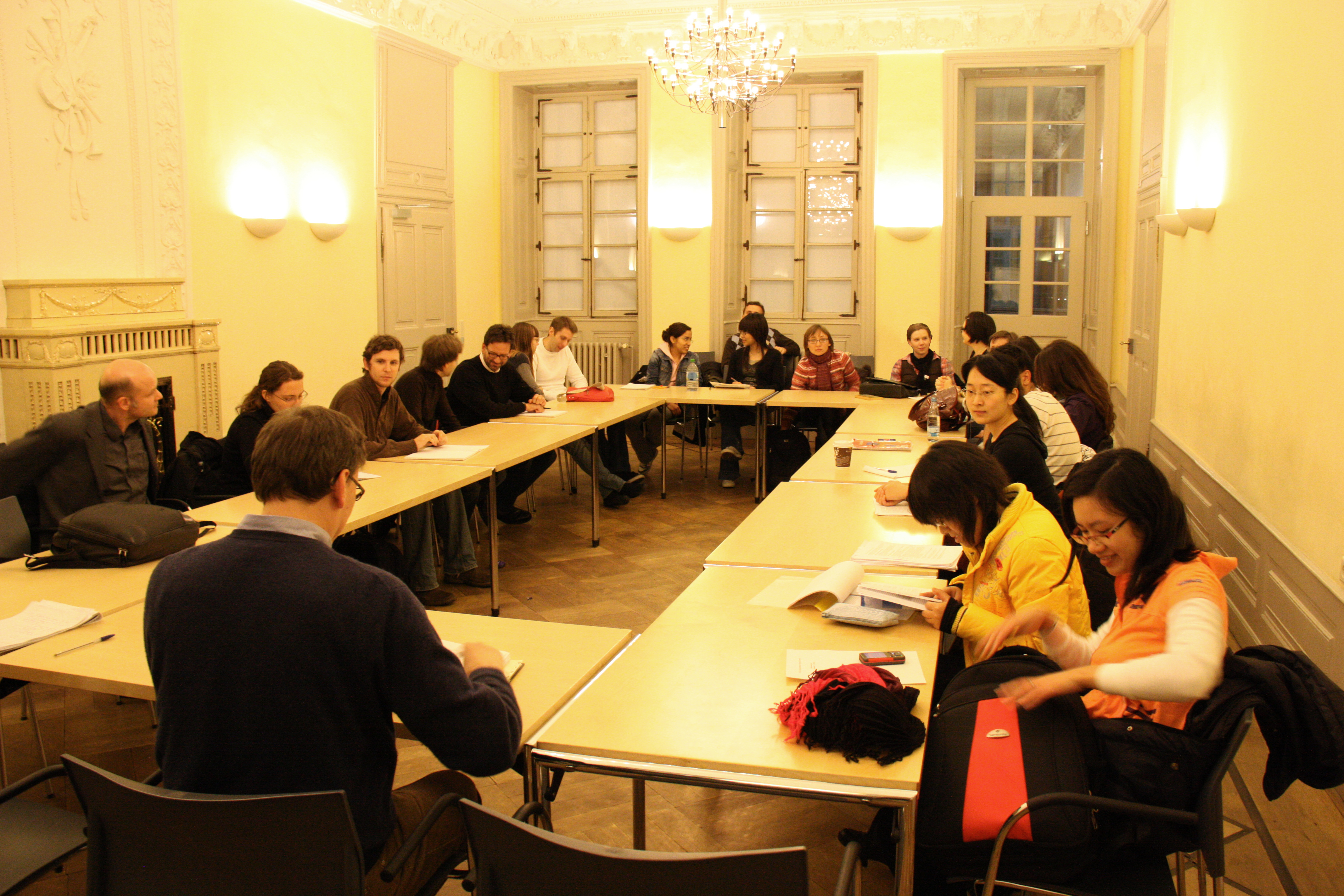 With the MAS Class of 2011 already going into its second semester at the HCA, one of the students, Axel Kaiser Barents von Hohenhagen gives us an insight into his Heidelberg Experience.
With the MAS Class of 2011 already going into its second semester at the HCA, one of the students, Axel Kaiser Barents von Hohenhagen gives us an insight into his Heidelberg Experience.
After three months of living and studying in Heidelberg, I can fairly say that it has been a unique experience. The more time you spend here, the more you want to stay. This of course, is not only my perception. From all the people I have met until now, not one has expressed a much different opinion. There is definitely something special about this place that makes you like it. This may be the combination of different factors: its friendly atmosphere, the incredible beauty of the city, the cosmopolitan environment and the high quality of its University. I suspect that all of them are somehow connected. Indeed, the beauty and safety of the city just makes you feel good and therefore with a better disposition towards other people, whereas the cosmopolitan environment is in turn explained by the great reputation of its university.
Since being here is not only about studying, you should also know that Heidelberg is not only nice during the day, but also in the night. There are lots of places to go out, always full of people, usually students of different ages and from different backgrounds. Even on Sundays, believe it or not, you can find some activity, which is quite unusual for a small city like this.
Another important factor to take into consideration is that, compared to other cities in Europe, living expenses in Heidelberg are not high at all. In fact, I was surprised because it was cheaper than I expected which doesn’t mean of course that you don’t have to be careful with spending. In any case, there are plenty of opportunities for students who want to make some extra money.
Finally, I can only say that I would recommend the experience of studying and living here to anyone. I’m absolutely sure that, with the right attitude, no one would get disappointed.
Inside MAS: Welcome John R. Deni
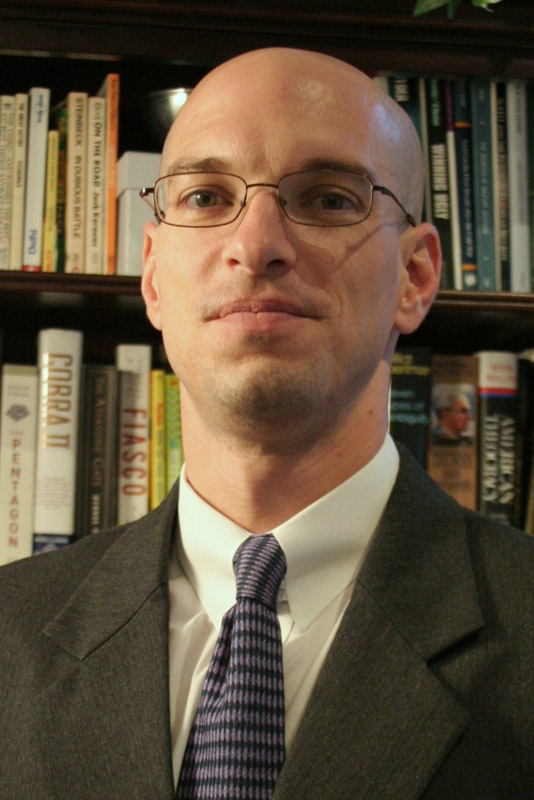 Dr. John R. Deni is an adjunct lecturer with the University of Heidelberg’s Institute for Political Science. This semester, he is teaching a course entitled, “U.S. Foreign Policy.” Here, Dr. Deni offers a brief look into his academic background and his plans at the HCA.
Dr. John R. Deni is an adjunct lecturer with the University of Heidelberg’s Institute for Political Science. This semester, he is teaching a course entitled, “U.S. Foreign Policy.” Here, Dr. Deni offers a brief look into his academic background and his plans at the HCA.
The greatest attraction of teaching political science generally and U.S. Foreign Policy specifically at the HCA is the chance to be in the classroom when students from different countries discuss and debate the merits of American policies toward the rest of the world. Not only do I find foreign student perspectives interesting and often downright insightful, but I believe such discussions and debates are also important vehicles for everyone in the classroom to learn from each other. Indeed, it’s a fascinating thing to see students learning from one another, often simply by expressing and appreciating different viewpoints, and I hope my time at the HCA provides the venue for much intercultural discussion on the roles and responsibilities of America in the world today.
Of course while learning from each other is important, most classroom learning occurs when instructors convey information to students. In this regard, I hope to provide HCA students with the perspective of not only an academic but with that of a practitioner as well. My own academic experience – a Bachelor of Arts from the College of William & Mary with double concentration in International Relations and History, a Master of Arts in U.S. Foreign Policy from American University in Washington, and a Doctorate in International Relations from George Washington University in Washington – has led me to believe that some of the most effective educators are those that can use their own experiences to marry the theory of their subject matter area with practice. Famed political scientist Alexander George termed this “bridging the gap between theory and practice,” and I hope to make some small contribution along these lines. To do this, I will rely upon my current full-time job as a political advisor to the U.S. Army’s headquarters in Heidelberg as well as the seven years I spent working in Washington as a consultant in national security and defense policy. Combined, these 15 years of experience as a practitioner of U.S. foreign policy will hopefully provide the HCA’s students with a unique outlook and enrich the classroom time we spend together.
Further News from the HCA
Opening celebration for the HCA’s extension
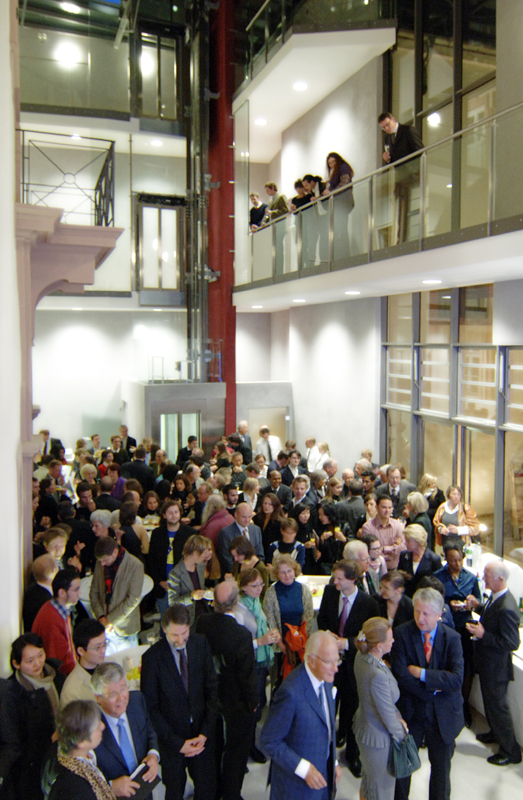
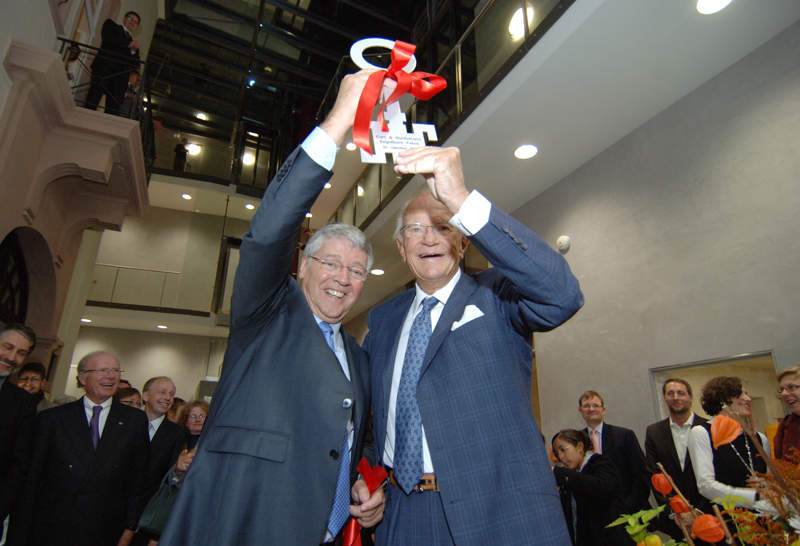
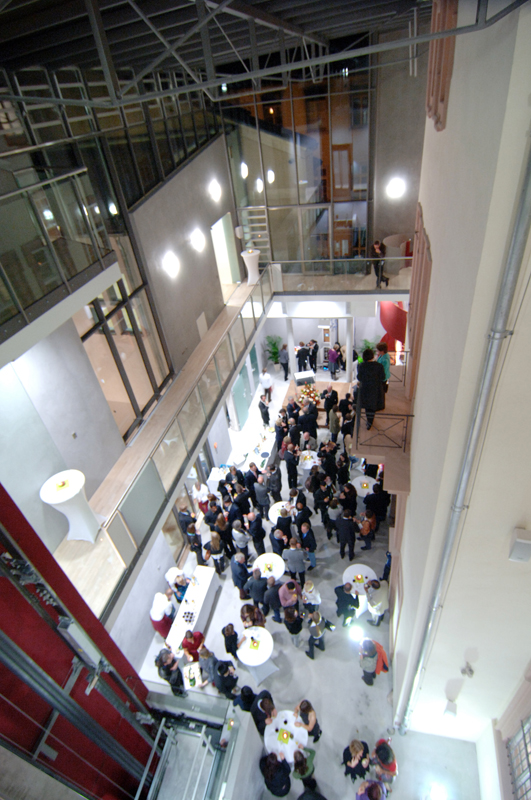 On October 20, 2009, Honorary Senators Curt and Heidemarie Engelhorn, Heidelberg Mayor Dr. Joachim Gerner, Heidelberg University Rector Prof. Dr. rer. nat. habil. Bernhard Eitel, HCA Founding Director Prof. Dr. Dr. h.c. Detlef Junker, sponsors and friends of the HCA, staff members, students, and guests gathered after the MAS Commencement for the official dedication of the HCA’s new academic facilities.
On October 20, 2009, Honorary Senators Curt and Heidemarie Engelhorn, Heidelberg Mayor Dr. Joachim Gerner, Heidelberg University Rector Prof. Dr. rer. nat. habil. Bernhard Eitel, HCA Founding Director Prof. Dr. Dr. h.c. Detlef Junker, sponsors and friends of the HCA, staff members, students, and guests gathered after the MAS Commencement for the official dedication of the HCA’s new academic facilities.
In their greetings both the mayor and rector congratulated the HCA on an addition that congenially conjoins state of the art architecture with a historic landmark. They emphasized the growing role of the HCA as a center for research and higher education that brings to Heidelberg students and scientists from all over the world. Honorary Senator Curt Engelhorn, who then took the floor, underlined the importance of German-American relations. In his view, the HCA plays a significant role in building bridges across the Atlantic by furthering a nuanced understanding of the United States through teaching, research, public lectures, and publications. Moreover, students at the HCA, coming to Heidelberg from many different countries, are given the unique opportunity to not only acquire inside knowledge about American politics, economics, culture and society from an outside perspective, but also to share their own cultural and educational experiences with their peers.
Curt Engelhorn then symbolically handed the keys to the new building to HCA Founding Director Detlef Junker, who thanked both Curt and Heidemarie Engelhorn for their generous support of the HCA. A red ribbon was cut by Senator Engelhorn and Professor Junker, thus officially inaugurating the new facilities. Subsequently, speakers and guests could mingle and enjoy some wine and food while having a closer look at the newly minted premises.
The annex comprises a new lecture room, an elevator, a kitchen equipped for event catering, and additional restrooms, including one accessible for persons with disabilities. The most spectacular feature of the new building, however, is a 360-square-meter, glass-covered atrium. By a stroke of genius, Klaus-Dieter Freund, legal counsel to the Engelhorn family, and architect Horst Müller decided to do away with the originally planned flight of stairs and instead install a corkscrew staircase in the northwestern corner of the atrium, thus making the entire internal space available for use as an auditorium, exhibition room or even concert hall. Both the new seminar room and the atrium are outfitted with cutting edge media and technology. Altogether, the annex effectively turns the HCA into a small convention center and opens up new vistas for the future.
Thanksgiving – A new tradition
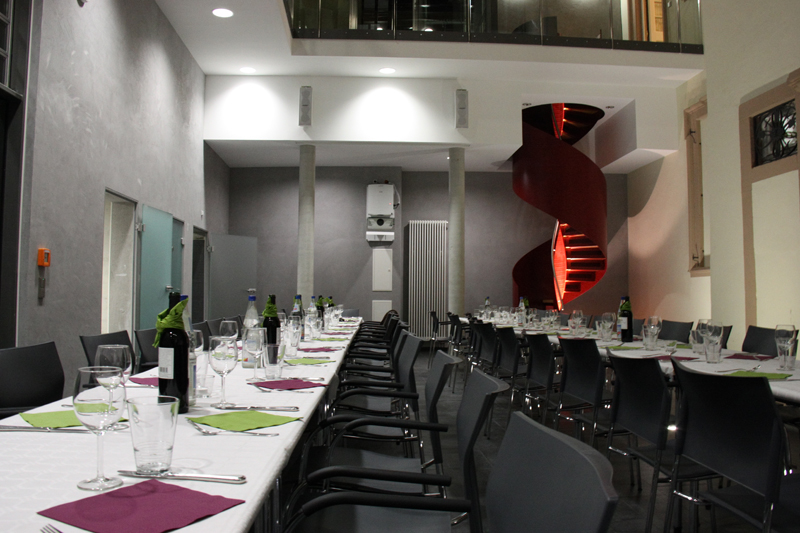
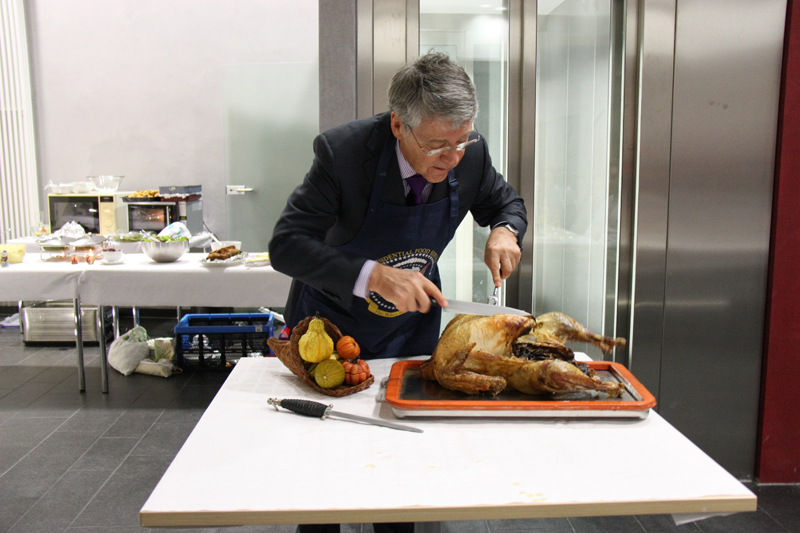
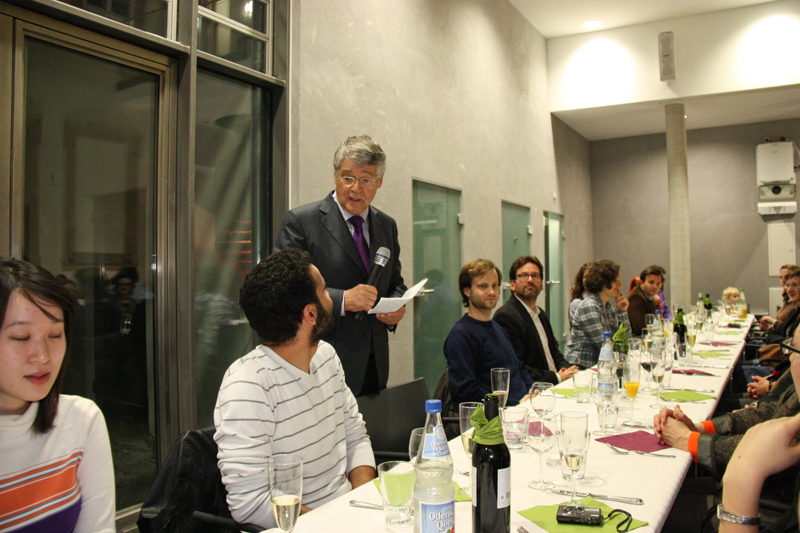
On Thursday, November 26, 2009, the HCA celebrated its traditional Thanksgiving dinner. Whereas in previous years the event was held in a local restaurant, this year we took advantage of our new facilities and hosted the dinner at the Curt and Heidemarie Engelhorn Palais. We wished to create a more familial setting with traditional, self-cooked dishes, and many participants got into the spirit and volunteered to cook something typical for this occasion.
Two long tables were set in the new atrium for the 60 guests, which consisted of MAS students, Ph.D. students, staff and faculty. The buffet table was laden with homemade mashed potatoes, green beans, sweet potatoes, creamed corn, different kinds of stuffing and cranberry sauce. After Prof. Junker officially carved the first turkey, the buffet was opened. The banquet concluded with pumpkin and apple pies. The food was outstanding, the atmosphere homey and comfortable, and we believe that a new HCA Thanksgiving tradition has been established!
Upcoming Events at the HCA
March 22-26, 2010, HCA
HCA Spring Academy on American History, Culture, and Politics
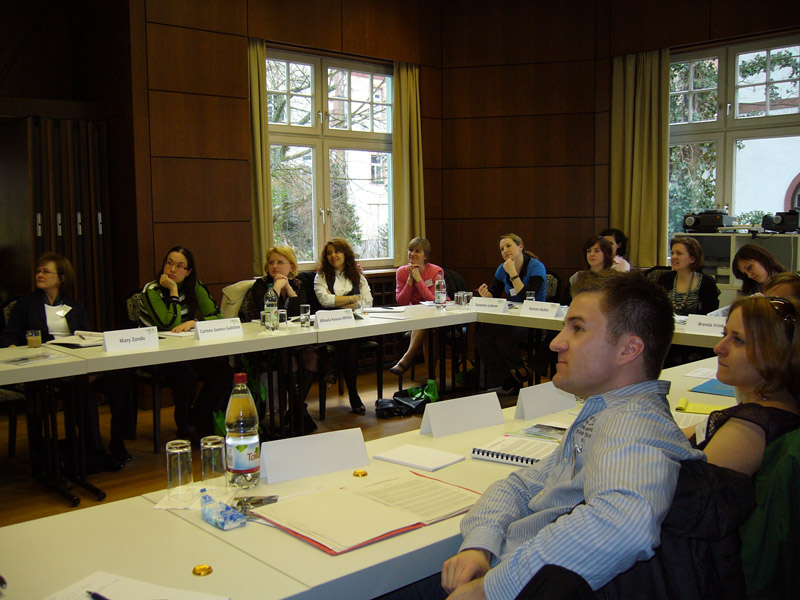 This year's Spring Academy brings together 21 Ph.D. students affiliated with institutions in 7 countries, holding 9 different nationalities, and representing 12 academic disciplines. During the five-day conference the participants will discuss their dissertational projects and receive feedback on form and content. Four guest speakers from Germany and the United States have been invited for workshops. A highlight of the HCA Spring Academy 2010 will be a themed guided tour during which participants will discover Heidelberg "In the footsteps of Mark Twain," while taking a historical and literary stroll through Germany's romantic capital.
This year's Spring Academy brings together 21 Ph.D. students affiliated with institutions in 7 countries, holding 9 different nationalities, and representing 12 academic disciplines. During the five-day conference the participants will discuss their dissertational projects and receive feedback on form and content. Four guest speakers from Germany and the United States have been invited for workshops. A highlight of the HCA Spring Academy 2010 will be a themed guided tour during which participants will discover Heidelberg "In the footsteps of Mark Twain," while taking a historical and literary stroll through Germany's romantic capital.
For more information on the HCA Spring Academy and this year's program visit: http://www.hca.uni-heidelberg.de/spring/index_en.html
April 30 – May 1, 2010, University of Wisconsin-Madison (UWM)
Conference: Transatlantic Alliances and Networks in a Global Context
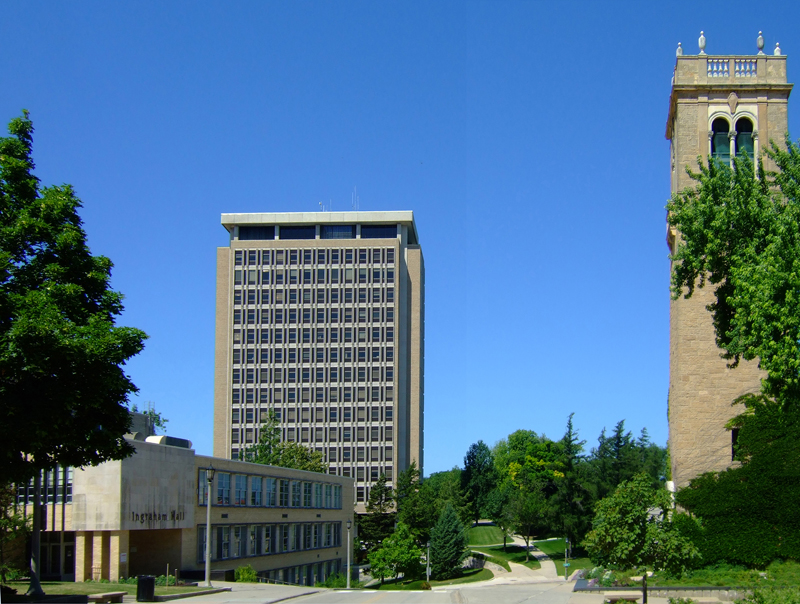 206 Ingraham Hall, 1155 Observatory Drive
206 Ingraham Hall, 1155 Observatory Drive
The conference is part of an HCA-UWM-led international research project that explores the Transcultural Atlantic as a realm of crosscultural interaction throughout the period of the Cold War and beyond. More precisely, it investigates various processes of transatlantic networking and community-building in the realms of business, academia, the media, popular culture, government, the military, and elsewhere. The project is neither limited to diplomatic history and political science studies dealing with alliance politics nor to cultural studies that have long focused on the construction of national identities. Instead, it aims at synthesizing both research areas, thus trying to arrive at a fuller understanding of processes of transatlantic community-formation since 1945. By covering a broad period of time, it will be possible to trace changes in the culture of different, sometimes competing communities in the Atlantic realm – to highlight continuities and ruptures; to show the effects of increased flows of goods, services, information, ideas, and identities; and to reassess the impact of major historical developments throughout the era of the Cold War, not least its unexpected end. Visit the website for more information about the project. http://www.hca.uni-heidelberg.de/forschung/mainresearchareas.html
June 4-6, 2010, HCA
Conference: Toward an International History of Lynching
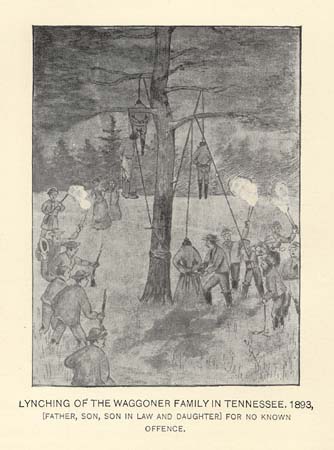 Conference organized by the Hamburg Institute for Social Research (HIS), the Heidelberg Center for American Studies (HCA), and the University of Heidelberg’s Transcultural Studies Research Group “Radical Nationalism and Gender in the United States, Germany, and Japan.”
Conference organized by the Hamburg Institute for Social Research (HIS), the Heidelberg Center for American Studies (HCA), and the University of Heidelberg’s Transcultural Studies Research Group “Radical Nationalism and Gender in the United States, Germany, and Japan.”
For more information on the project visit: http://www.uni-heidelberg.de/fakultaeten/philosophie/zegk/schurman/startseite/schurman_startseite_eng.html
Imprint
Heidelberg Center for American Studies (HCA)
Curt und Heidemarie Engelhorn Palais
Hauptstraße 120
69117 Heidelberg
Tel.: + 49 (0)6221 543710
E-Mail: hca@uni-hd.de
www.hca.uni-hd.de
Distributed by
postina.net, Heidelberg
This is a cost-free, non-profit service. No addresses or other information will be forwarded to third parties.


 Graduiertenkolleg
Graduiertenkolleg